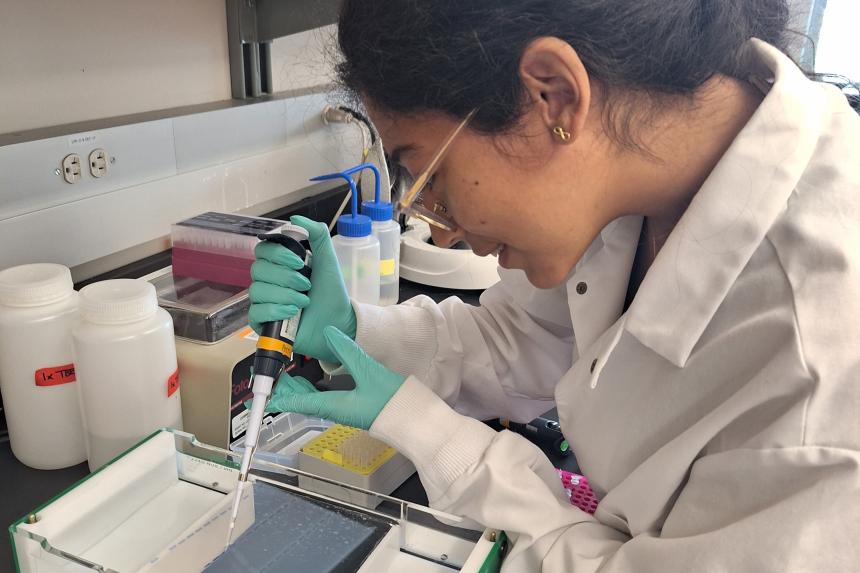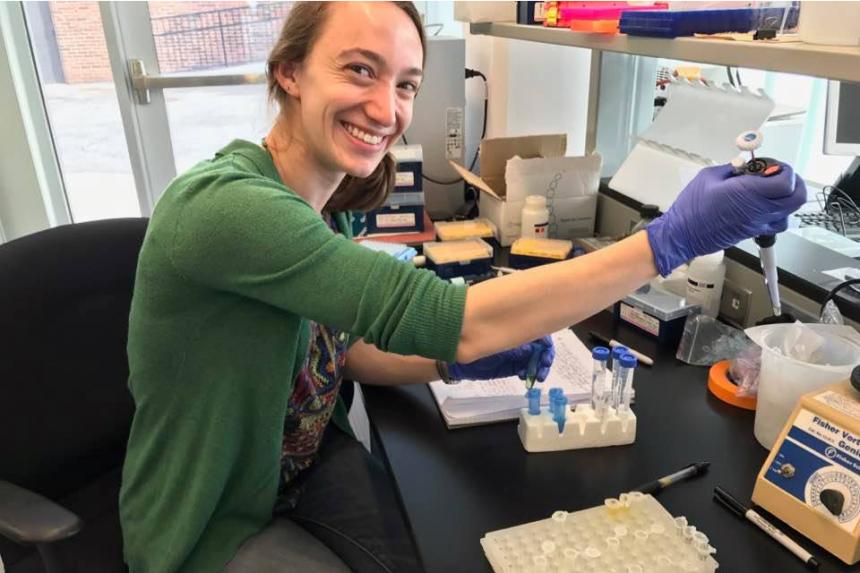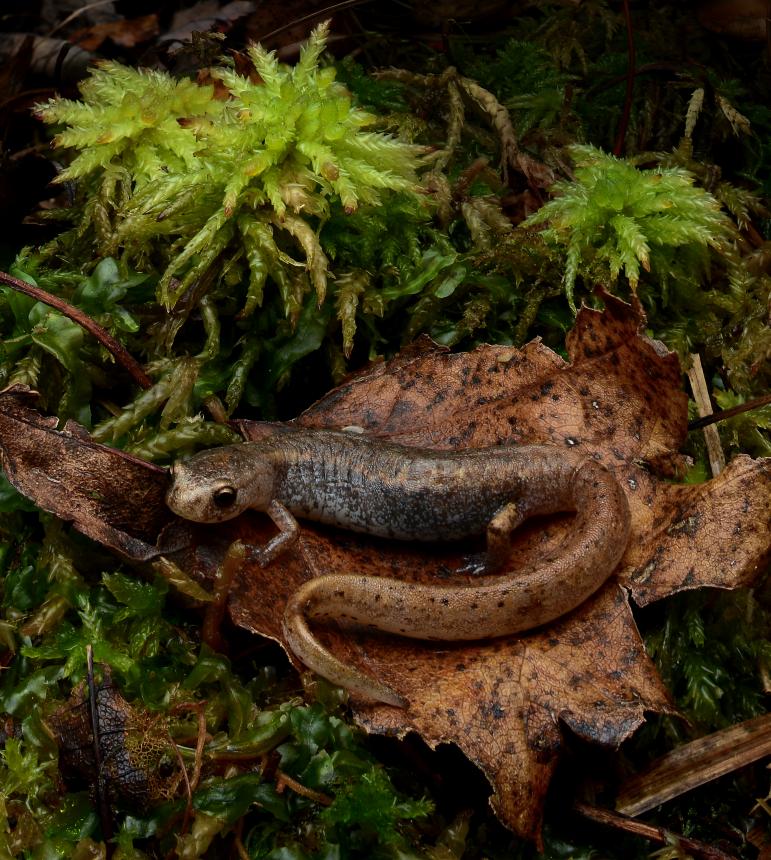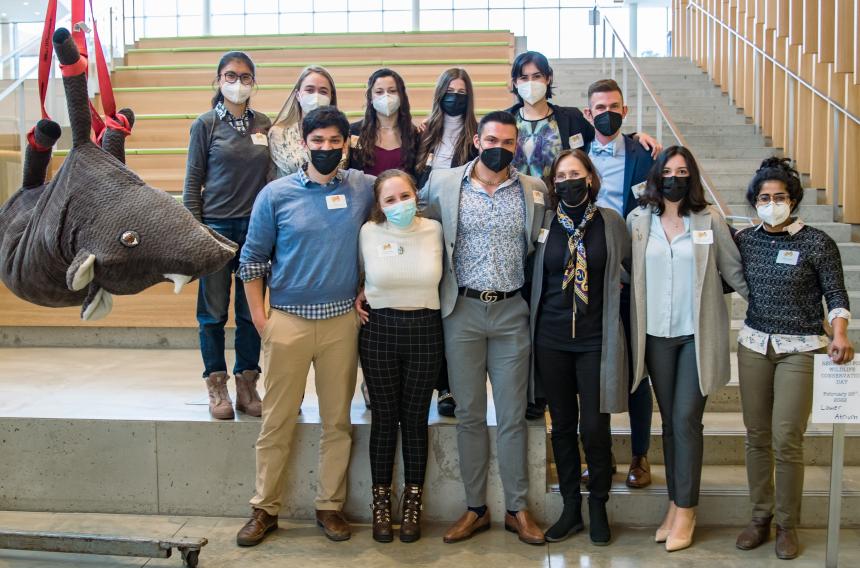In the News

Blog
December 19, 2024
My role within the Cornell Wildlife Health Lab (CWHL) is a grab bag of all things related to molecular biology - meaning that no two days are ever alike, and I never do all the different parts of my job in a single day....

May 13, 2024
Ever wonder what happens with our students after they are done working/learning with the Cornell Wildlife Health Lab? Well, we keep in touch and follow their journey beyond CWHL. Here's a look at what a few of our wildlife students have planned next.

January 30, 2024
A transformational gift from philanthropist and Cornell alumna K. Lisa Yang ’74 will endow and rename the Cornell Wildlife Health Center as the Cornell K. Lisa Yang Center for Wildlife Health at the College of Veterinary Medicine.

News
June 05, 2023
Dr. Alyssa Kaganer began working with wildlife as an undergraduate student at Cornell University in 2012. She recalls “stumbling” into research at the Cornell Wildlife Health Lab, where she was mentored by Drs. Krysten Schuler and Elizabeth Bunting.

January 05, 2023
Protecting wildlife is hard, and a key step to determine if a wildlife species needs conservation intervention is finding them. The Cornell Wildlife Health Lab's Alyssa Kaganer describes using eDNA techniques to successfully find four-toed salamanders.

For Your Information
June 30, 2022
Successful conservation efforts for threatened species depend on accurate characterization of their distribution, habitat use, and threats. Environmental DNA (eDNA) monitoring can provide a sensitive and noninvasive alternative to traditional surveillance techniques.

March 21, 2022
Cornell’s Zoo and Wildlife Society hosted its first Wildlife Conservation Day Feb. 26, a one-day symposium devoted to education and training for students with an interest in non-domestic species.

January 31, 2022
The Cornell Wildlife Health Center continues to enhance synergy among many of Cornell’s wildlife-focused programs, expand student learning opportunities, and capitalize on earnest interdisciplinary approaches to addressing key wildlife conservation and related public health challenges.

January 17, 2022
Environmental DNA techniques can detect a deadly virus in amphibian ponds, giving wildlife managers critical information about how to best protect vulnerable amphibian species.

December 09, 2020
The Cornell University College of Veterinary Medicine has released its 2020 Annual Report, detailing its progress in its key strategic priority areas, including "Advances in Animal, Human and Ecosystem Health."
